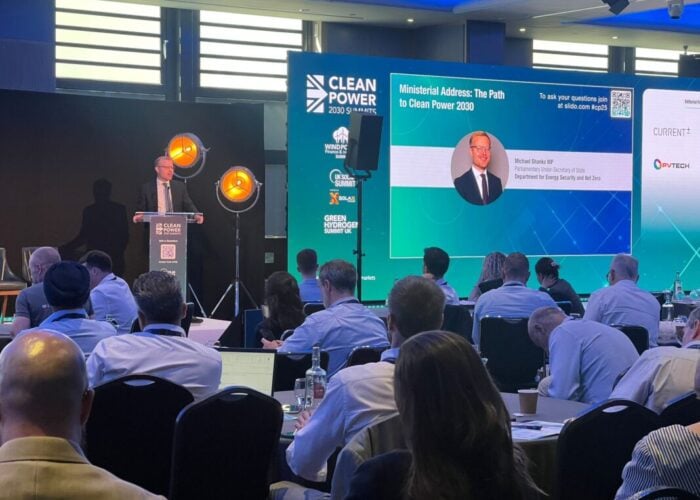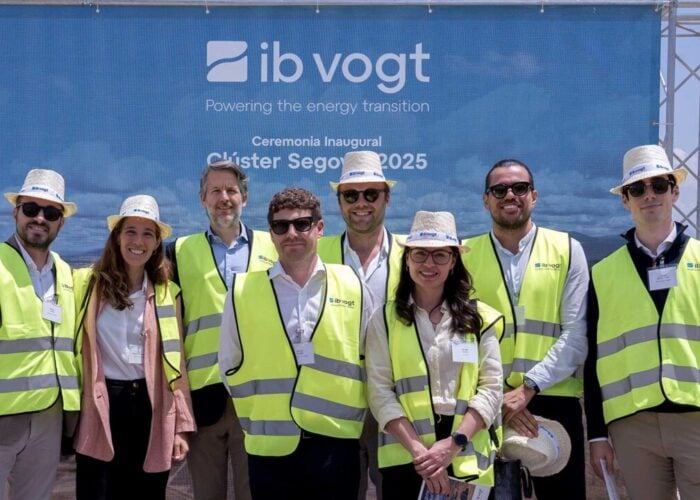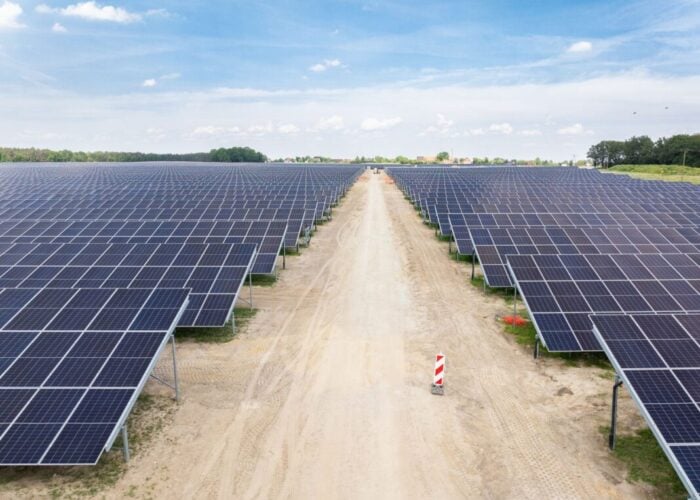The EU-China solar trade dispute that has now engulfed Malaysia and Taiwan looks almost certain to spread after it emerged that the company behind the case has other countries including India in its sights.
Days after the European Commission said it would open an investigation into Chinese firms trans-shipping products via Malaysia and Taiwan to circumvent European import duties, SolarWorld has told PV Tech it is amassing evidence of similar activities in other overseas territories.
Unlock unlimited access for 12 whole months of distinctive global analysis
Photovoltaics International is now included.
- Regular insight and analysis of the industry’s biggest developments
- In-depth interviews with the industry’s leading figures
- Unlimited digital access to the PV Tech Power journal catalogue
- Unlimited digital access to the Photovoltaics International journal catalogue
- Access to more than 1,000 technical papers
- Discounts on Solar Media’s portfolio of events, in-person and virtual
“We are already collecting circumvention data for other countries,” said SolarWorld vice president Milan Nitzschke.
“At the moment when shipments increase significantly, we will immediately file anti-circumvention cases just like the one that has just opened. If somebody wants to act like a criminal, they will try to find other ways to do so. Therefore, we have to be aware of shipments that have been trans-shipped via Malaysia and Taiwan, could for example, now be trans-shipped via India or Indonesia. But you can't just hit everything with one case.”
Nitzschke said India was one country where there was strong evidence emerging of companies “willing to contribute to circumvention”.
“When the volumes increase that is time to take action,” he said, referring to the shift in trading patterns that prompted SolarWorld’s request to the commission to investigate Malaysia and Taiwan.
The prospect of the EU-China trade dispute escalating appears to be one for which the industry is already bracing itself.
Speaking to PV Tech, James Watson, chief executive of trade body SolarPower Europe, formerly the European Photovoltaic Industry Association, said a snowballing effect was possible if SolarWorld was successful with its latest complaint.
He cited the example of a recent dispute between the EU and China over bicycle manufacturing, in which an increasing number of countries became involved as European manufacturers pursued their Chinese rivals for circumventing duties by manufacturing in other countries.
“You can imagine that if [SolarWorld] are successful [with Malaysia and Taiwan] then maybe there will be a push for Thailand – Trina are building in Thailand – or the Philippines, where SunPower are. There's the potential for this to snowball.
“It's really not good news if it does snowball by any stretch of the imagination because we're going to be looking at a continuation of a trade conflict we don't want to have. And if you can start with Taiwan and Malaysia now, in six months you could be in the Philippines, Thailand and then Vietnam, Indonesia, India – anywhere you happen to go. And then what about Korea and Japan?”
Another concern is the impact of any anti-circumvention measures by the EU on non-Chinese firms that manufacture in territories such as Malaysia and Taiwan.
Ben Hill, president of Chinese manufacturer Trina Solar, raised the prospect of companies such as SunEdison and Hanwha Q CELLS, which both have manufacturing operations in Malaysia, becoming caught up in the investigation and any potential action taken by the EU.
“It's not 100% clear, but it’s likely they will be in violation of the undertaking,” Hill said. “So there are potentially huge implications to this and the EU is not aware. We were talking to DG Trade in the past couple of weeks and they had no idea of the implications of this for the industry.”
Nitzschke downplayed the prospects of such an eventuality. Speaking in his capacity as president of EU ProSun, the European industry body led by SolarWorld that was behind earlier trade cases in Europe, he said in a statement that “genuine” PV manufacturers in Taiwan and Malaysia not engaged in “customs evasion” should have nothing to fear.
“EU measures should stop Chinese dumping and circumvention via third countries, not legitimate solar production from countries such as Taiwan and Malaysia which will continue to be imported duty free into the EU,” Nitzschke said.
“Companies whose products are normally manufactured in Taiwan and Malaysia are invited to make themselves known to the European Commission by a deadline of early July, and to request an exemption from additional tariffs.”
A spokesman for Hanwha Q CELLS echoed this view: “We have listened to the inquiry by the EU Commission. Of course we will work together with them very closely and reply to all questions. Regarding the meaning of this investigation for Hanwha Q CELLS, as you know we have a very international setup of production, including our original production in Malaysia and since the target of the investigation is to prevent Chinese cells or modules to bypass the undertaking, we believe that Hanwha Q CELLS won’t have any kind of problem with this kind of investigation.”
Watson said SolarPower Europe would take the position that circumventing the MIP and duties was wrong because it is illegal, but that the reasons this was happening – the MIP and the duties – were also wrong and should therefore be tackled.
“What we would say is remove the MIP, get rid of the duties, and actually you don't need to have anybody circumventing anything because we go back to market prices and normal free and fair trade,” Watson said.
Additional reporting by John Parnell and Andy Colthorpe.







